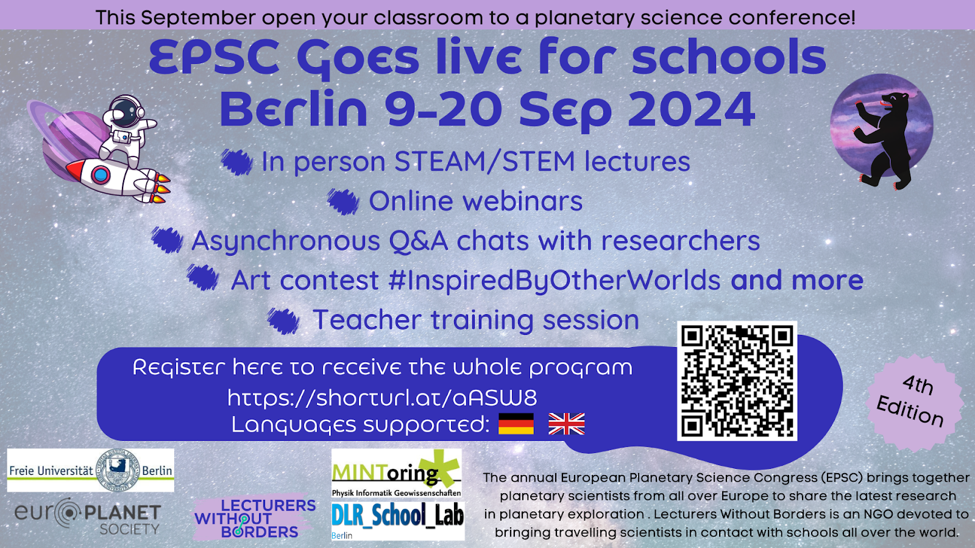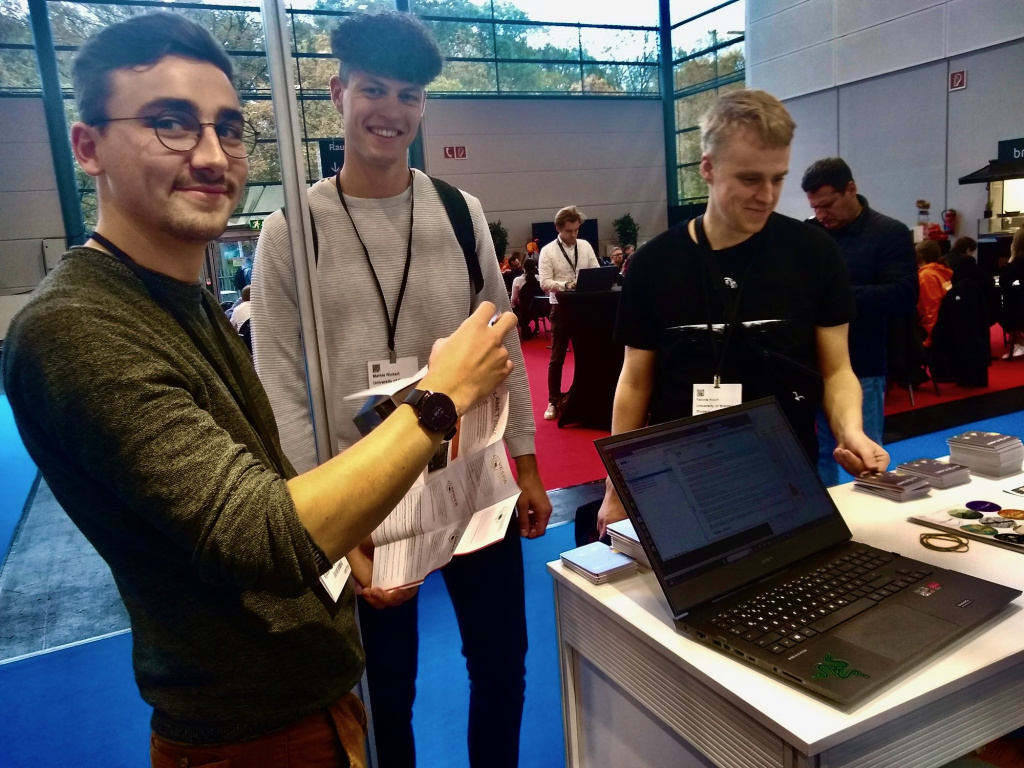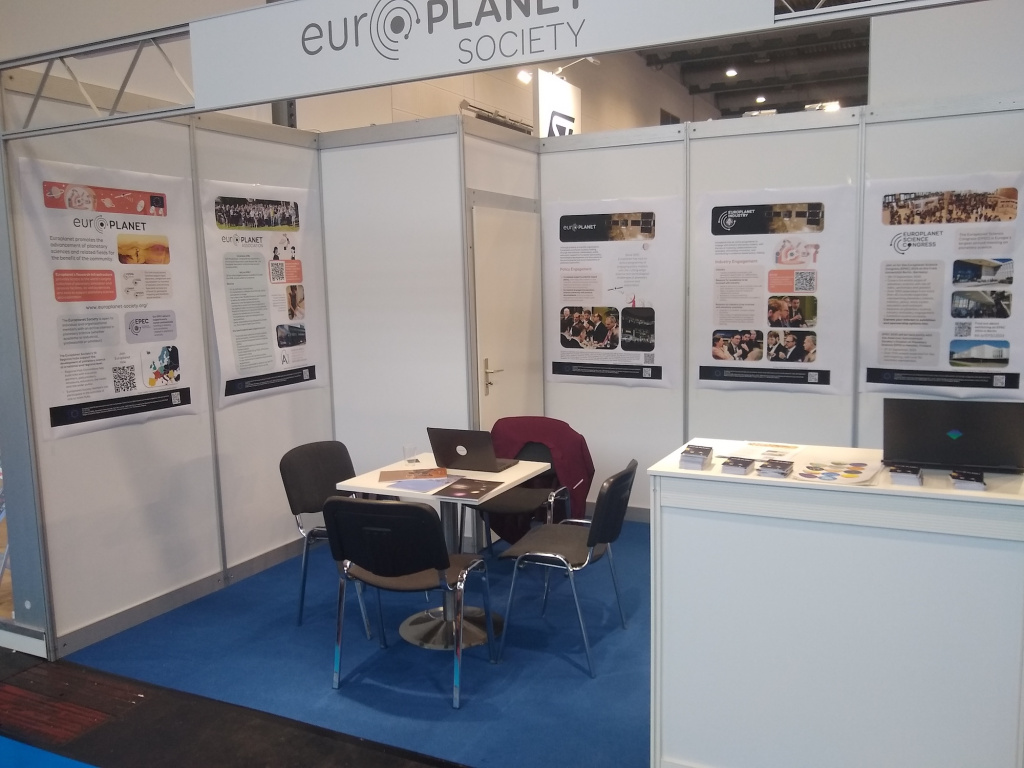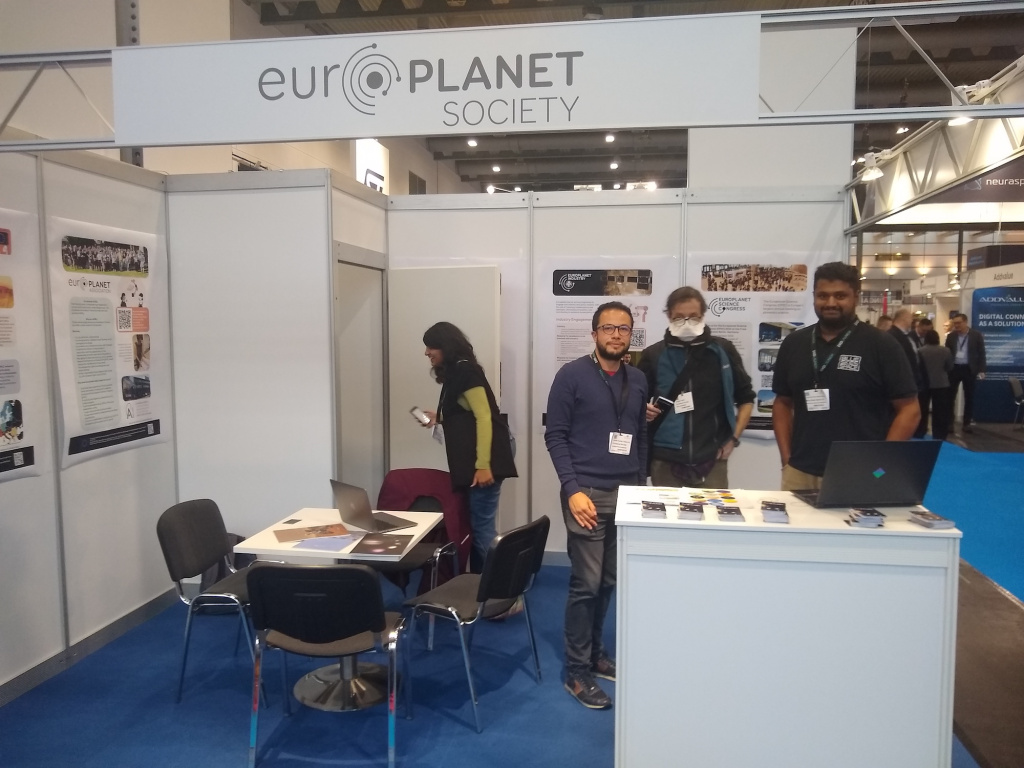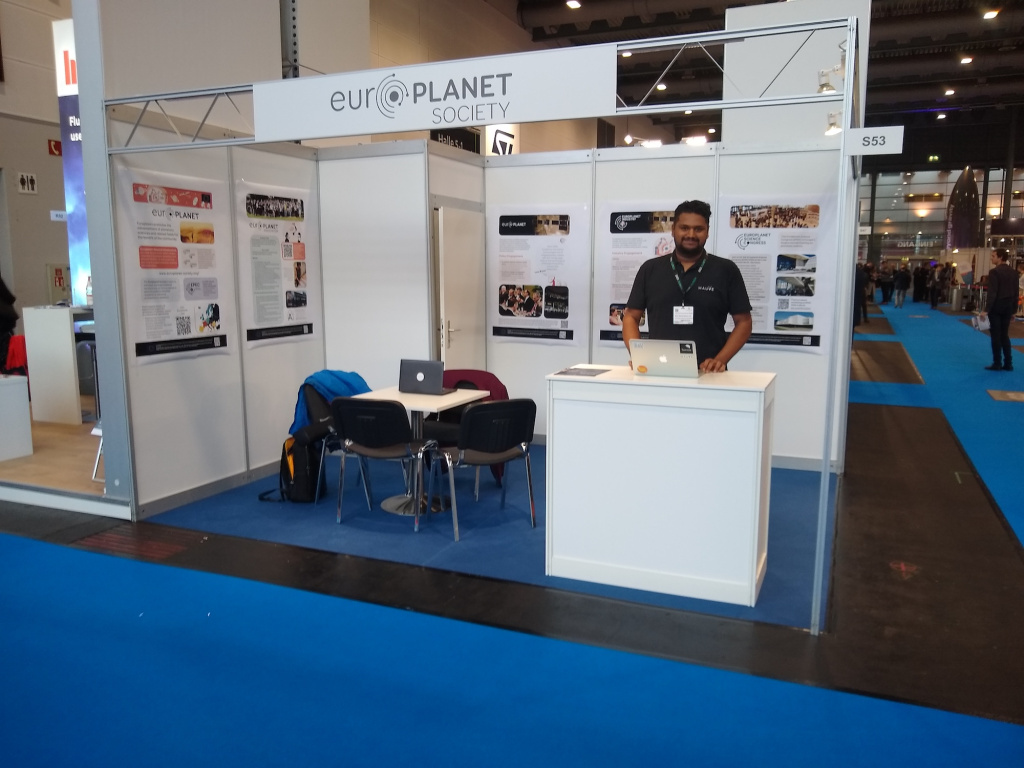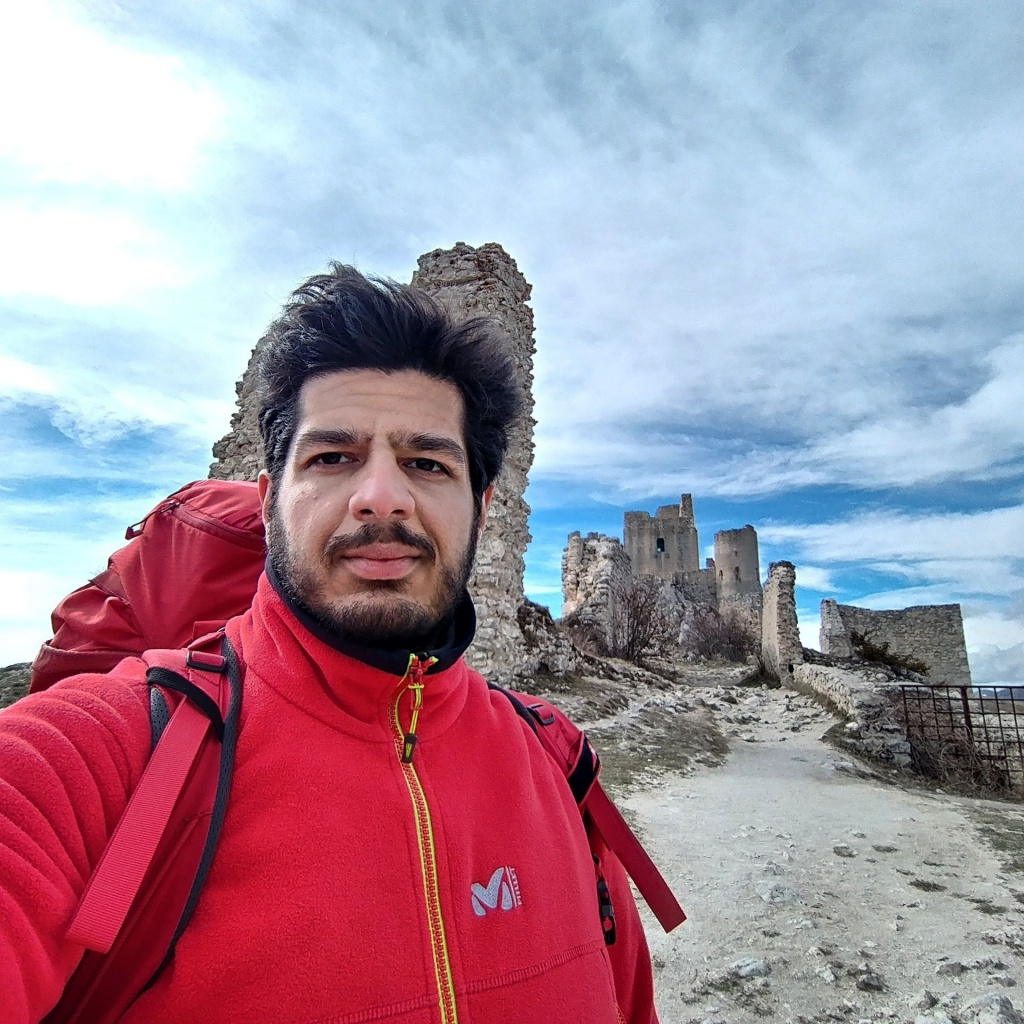The Future of Sample Return
With Insider Dr Enrica Bonato
By Peter McArdle, Hans Huybrighs, Prasanna Deshapriya, Ottaviano Ruesch, and the EPEC future research working group.
The field of sample return is developing rapidly around an increasing number of missions. What facilities and techniques are needed to handle such samples? Will sample return dominate other fields of planetary science? We discussed these questions and more with Dr. Enrica Bonato, who developed the Sample Return Lab at DLR and worked with samples from Hayabusa2 and legacy samples from Luna 24.

Can you tell us about your academic background?
I earned my PhD in planetary science, undertaking my research jointly at the Natural History Museum (NHM) in London and the University of Glasgow. My project focused on the thermal metamorphism of carbonaceous chondrites. Following this, I took on a short postdoctoral position at the NHM, where I worked on lithium mining. I am passionate about public engagement, and I explored various outlets for this during my time at the NHM.
After completing my postdoc, I transitioned into the role of lab developer and manager for the newly established DLR sample return lab. When I started this role, there was no lab to speak of! I played a crucial role in planning and outfitting the lab in addition to getting it ready for its intended use as a sample return facility and curation center. As part of my responsibilities at DLR, I am proud to be a member of the Hayabusa 2 and MMX analysis teams.
What advice would you give to early career researchers who would be interested in a similar role to yours?
The key to securing my role as a lab developer manager was ‘delving behind the scenes’ of various instruments during my postdoc. This allowed me to become an independent user of these instruments, by becoming involved in everything from sample preparation, instrument set up and operation to data analysis. Attending numerous training events organised by instrument and software suppliers also proved invaluable experience.
For those intrigued by the prospect of joining sample return missions, I believe being in the right place at the right time is crucial. However, I suggest that early-career researchers (ECRs) with an interest in these missions reach out to existing team members. By doing so, they can explore opportunities to support the mission in various ways.
“I suggest that early-career researchers with an interest in these missions reach out to existing team members.”
Enrica Bonato
How do you see the future of sample return?
We are currently in a golden age for sample return. Multiple missions have successfully returned samples from asteroids (Hayabusa, Hayabusa2, OSIRIS-REx) and the moon (Chang’e 5) in recent years. At the same time new missions are in preparation to return samples from Mars and its moon Phobos (MMX, Mars Sample Return).
I believe that it won’t stop here. In the coming decades, we will witness sample return missions expanding to an increasing number of objects. I am particularly excited about the prospect of sample return missions from Ceres and comets. As part of the sample return mission process, we are also dedicated to enhancing the handling and analysis of samples already on Earth. The collection, transportation, and storage of samples from other planets demand a detailed understanding of material properties, necessitating a new specialisation within the field of planetary science.
“We are currently in a golden age for sample return.”
Enrica Bonato
We can analyse samples much better in a lab on Earth than by using limited instruments on space missions. Will there be a shift towards sample return missions at the cost of traditional space missions?

“Sample return missions will complement other planetary science missions.”
Enrica Bonato
I believe that sample return missions will complement other planetary science missions. It’s crucial to bring a diverse array of instruments to the objects we’re interested in. On one hand, we need to assess and identify sites that are intriguing and suitable for sample return. On the other hand, we also need to conduct broader investigations of the objects to provide context for the analysis of the samples.
What are the main challenges for sample return in the coming decades?
Challenges will come from the new sample environments that we will access and new types of materials that we will sample, for example a potential future sample return mission from Venus’ surface. Building a spacecraft that can land on Venus’ extremely hostile surface and return a sample is extremely challenging. Challenges will also arise from returning a new type of sample: ice. So far the samples returned are rocks. Sampling ices from Ceres, comets or icy moons and keeping them frozen throughout cruise, the landing and later in storage on Earth brings unique challenges. Some of these technologies already exist in other fields, but a lot of new development is needed.
How did you plan the outfitting of the new sample return lab for DLR?

I was the only person working on this project, alongside the grant holder, who also served as my supervisor. Before my involvement, there were already some initial planning and key milestones in place. My goal was to implement and adapt this plan throughout my time at DLR. I focused on specific techniques, aiming to establish a unique and specialised niche for the lab. Considering both the institute’s requirements and the broader scientific community, I selected instruments and managed their procurement. The next step in the project would be to upgrade the lab to a curation facility.
What are the key features of a dedicated sample return lab? And how might these differ from an equivalent Earth science lab?
The features are quite similar to an Earth science lab. Analyses often take place in labs at universities or research institutes, not necessarily tailored for a particular incoming sample. One notable distinction is the need for personnel to wear lab clothing and adhere to specific standards in sample handling so as not to contaminate samples.
Does the sample return lab at DLR possess any distinctive instruments or employ unique techniques for the analysis of samples that are not currently accessible to the broader community elsewhere?
The sample holders for XRD (X-Ray Diffraction) analysis allow for preparation within a glove box and subsequent analysis of the samples without exposure to air. Additionally, another unique feature is a sample transport shuttle that facilitates vacuum conditions between the Electron Microprobe and SEM (Scanning Electron Microscope), ensuring a controlled environment for the sample.

Exciting years ahead for sample return. Thanks Enrica!

